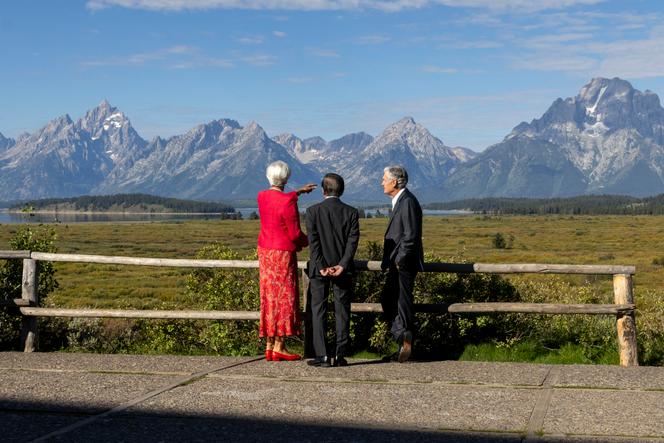


The scene took place on Tuesday, July 2, at a luxury hotel in Sintra, near Lisbon, Portugal. On the podium, three of the world's biggest central bankers gave a conference: European Central Bank (ECB) President Christine Lagarde, US Federal Reserve (Fed) head Jerome Powell and Roberto Campos Neto, president of the Central Bank of Brazil. All three are, in their own way, under pressure, facing political anger from all sides. After four decades during which their independence was reinforced, "the tide is turning," said Davide Romelli, an economist at Trinity College University, Dublin.
For months, Campos Neto has been the target of virulent attacks from Brazilian President Luiz Inacio Lula da Silva, who accuses him of being his "adversary" because he maintains interest rates deemed too high – currently at 10.5%. "[Neto] has a clear political side. As I see it, he works much more to harm than to help the country," Lula thundered just two weeks earlier.
In the United States, Powell, despite being appointed to his post in 2017 by Donald Trump, is often targeted by the White House's former Republican occupant, who accuses him of favoring the Democrats. It has become a recurring theme, with the Republican presidential candidate returning to it at a press conference on August 9: "I feel the president should have at least a say in [Fed decisions]. I feel that strongly. I made a lot of money. I was very successful. And I think I have a better instinct than, in many cases, people that would be on the Federal Reserve – or the chairman." The billionaire vowed not to reappoint Powell for a third term when it expires in May 2026.
The ECB faces pressures of a different kind. In early July, before the second round of parliamentary elections in France, the discussions were whether it would come to the rescue of the French government should markets panic. Lagarde carefully avoided answering, even though she knew she would inevitably be at the center of debate in the event of a downturn in the French economy. In recent years, President Emmanuel Macron has also criticized the Frankfurt-based institution on several occasions. In April, he said that its mandate, which focused on inflation, was "outdated" and that it was "essential" to add "a growth objective or even a decarbonization objective – in any case, a climate objective for our economies."
Starting on August 22, the world's leading central bankers will once again be at the heart of debates when they meet for three days in Jackson Hole, Wyoming, for the Fed's traditional annual symposium. The Fed's independence began to assert itself in the 1980s. In the previous decade, oil shocks had led to uncontrolled inflation, with central banks reluctant to raise interest rates too sharply for fear of suffocating the economy and angering governments. At the time, Fed Chairman Arthur Burns was accused of being too close to President Richard Nixon, who sought to boost growth to win the 1972 presidential election.
You have 54.68% of this article left to read. The rest is for subscribers only.
